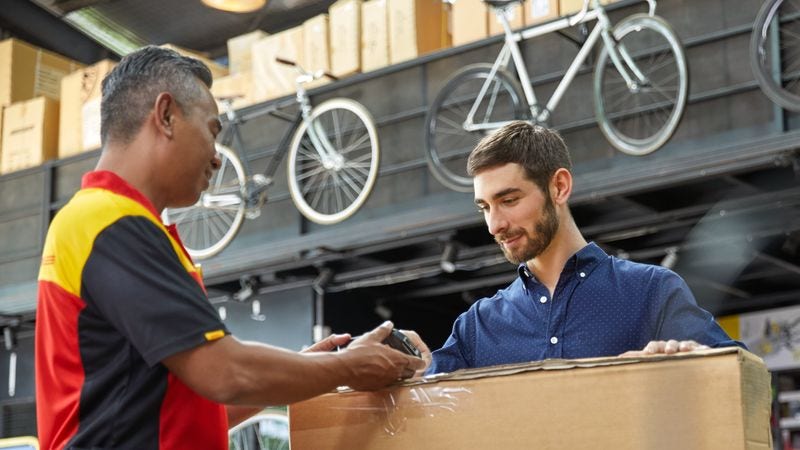
Singapore stands out as a crucial gateway for UK businesses looking to access the dynamic markets of Southeast Asia. Its strategic location offers lucrative opportunities for a range of UK products, from traditional foods to advanced technologies. With many British companies already thriving in Singapore, it serves as a springboard into the region.
Despite the potential, entering the Singaporean market poses unique logistical challenges. Mastering shipping logistics, understanding customs regulations, and navigating trade agreements are vital for a successful entry. This guide simplifies the shipping process from the UK to Singapore, providing key insights for a smooth transition into this market.
The UK’s top exports to Singapore
But first, to fully leverage the opportunities in Singapore, it's essential to grasp the dynamics of the UK-Singapore trade relationship.
As per the Department for Business & Trade, Singapore ranks as the UK's 15th largest export market, with UK exports to Singapore amounting to £14.8 billion for the four quarters ending Q3 2023, representing 1.7% of total UK exports during this period.
Key UK exports to Singapore, according to the Department for Business and Trade, encompass:
- Mechanical power generators
- General industrial machinery
- Medicinal and pharmaceutical products
- Miscellaneous metal manufactures
- Cars
These exports underscore the diverse and robust trade relations between the UK and Singapore, providing a promising avenue for UK businesses to expand in the Asian market. Additionally, it presents an opportunity for Singaporean businesses to market and sell imported British products.
Does the UK have a Free Trade Agreement with Singapore?
Businesses eyeing Singapore as a vital market can leverage the benefits provided by the UK-Singapore Free Trade Agreement (FTAs).
In this case, the two focal agreements are: the UK-Singapore Free Trade Agreement (UKSFTA) and the EU-Singapore Free Trade Agreement (EUSFTA), which has now ceased to apply to UK-Singapore trade.
Through these FTAs, trading becomes more straightforward with expedited customs clearance, reduced paperwork, and enhanced transparency in customs regulations. These agreements also ensure swift and efficient goods release, facilitating smoother international trade.
Understanding UKSFTA and its benefits
The UKSFTA marks a pivotal chapter in the trade relations between Singapore and the UK. This agreement embodies a continuation of the beneficial trade terms previously enjoyed under the aforementioned EUSFTA, aiming to propel British exports into Singapore while capitalising on Singapore's strategic role in enhancing the UK's connectivity with ASEAN.
Among its myriad benefits, the UKSFTA introduces:
- Liberal and flexible Rules of Origin (ROO): Offers lenient rules of origin for major exports between the two nations, covering a wide array of sectors such as automotive, pharmaceuticals, electronics, and textiles. This flexibility encourages a seamless flow of trade, enhancing the competitiveness of products in each other's markets.
- Duty-free access maintained: In alignment with the EUSFTA's tariff reduction schedule, the UKSFTA guarantees that 84% of tariff lines for Singaporean exports to the UK remain duty-free. By November 2024, almost all remaining tariffs will be eliminated, ensuring continued duty-free access for UK products entering Singapore.
- Facilitate trade through Authorised Economic Operator (AEO) recognition: Mutual recognition of AEO schemes simplifies documentary and cargo clearance, benefiting AEO-certified companies with expedited shipment processes.
Moreover, the UKSFTA incorporates provisions that extend beyond traditional trade agreement norms:
- EU & ASEAN Cumulation: It allows for the inclusion of EU-27 materials and parts in exports to each market, and for selected products, Singaporean companies can incorporate materials from ASEAN Member States. This facilitates the eligibility of such products for preferential tariff privileges, simplifying their access to favourable trade terms.
- The UK-Singapore Digital Economy Agreement (UKSDEA): Modernises aspects of the UKSFTA by binding disciplines on critical elements like data flows and explores cooperative areas, including Artificial Intelligence, FinTech, and Cyber Security. This dynamic framework, enriched with Memoranda of Understanding (MOUs) and side letters, opens new avenues for bilateral cooperation on emerging digital economy challenges.


















































